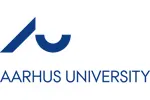

| The award | How you will study | Study duration | Course start | Domestic course fees | International course fees |
|---|---|---|---|---|---|
| MA | Full-time | 4 semester | September | 0 | EUR 0 per year |
The MA programme in Sustainable Heritage Management at Aarhus University provides you with the knowledge and competencies you will need to meet the multiple challenges of contemporary heritage policy, management, and research. Working with cultural and natural heritage means being conscious of, and taking responsibility for, the links between humans, the environment, and what remains from the past. We acknowledge that heritage is also an integral part of the present, and a potential resource for the future. The Sustainable Heritage Management programme equips you, through engaging with theory and best practice, with the skills necessary to work in the exciting, expanding, and increasingly complex field of heritage. You will be trained in a uniquely interdisciplinary environment to understand, designate, assess, retain, and sustain heritage and to develop, revise, and innovate the future shape of the sector.
HERITAGE AS RESOURCE
The Sustainable Heritage Management programme qualifies you to analyse and respond ethically to the demands of heritage work, providing not only a sophisticated intellectual framework, but also a practice-based toolbox of skills. You will learn to tackle the pressing challenges of heritage management on local and global scales.
A HIGHLY INTERDISCIPLINARY FIELD
Heritage is a highly interdisciplinary field, drawing on methodologies, theories, and approaches from several disciplines. The Sustainable Heritage Management programme at Aarhus University is anchored in an interdisciplinary research environment that includes engaging with researchers from archaeology, anthropology, geography, history, aesthetics, museology, cultural studies, and digital design.
This means that during your course of studies you will be equipped to work not only with material forms of cultural heritage, but also with intangible heritage, text, images and, not least, people and their various perceptions of heritage. The programme revolves around and intersects with the internationally renowned Moesgaard Museum, which is located just outside Aarhus, affording unique collaborative opportunities for students and staff in this university museum environment.
STUDENT LIFE
The Sustainable Heritage Management programme is based at the Department of Archaeology and Heritage Studies at Moesgaard, an eighteenth-century manor house newly equipped with state-of-the-art facilities that also houses the Department of Anthropology. Here you will have access to a library, computers, a common room, lounges, and a cafeteria, as well as the internationally renowned archaeology and anthropology museum, MOMU (www.moesgaardmuseum.dk) and the surrounding hundred hectares of beautiful fields and woodlands leading down to the sea.
The main association for students at the department is Hikuin, which organises academic discussions about your studies and also contact with the business community, not to mention the legendary Friday bars and a number of social initiatives.
CAREERS
Graduates in Sustainable Heritage Management are qualified for a number of job markets and industries, depending on your chosen area of interest and specialisation. While some recent graduates have embarked on PhDs at Aarhus University and overseas, others are working in the community, museum and archival sectors, in planning and development agencies, and in bodies within resource management and capacity-building, as well as in tourism and the artistic and creative industries.
CAMPUS MOESGAARD
Campus Moesgaard is a unique place. It includes the Moesgaard Library, a joint library for anthropology and archaeology, as well as the Moesgaard Museum. The library is primarily for students and staff members at Moesgaard. Here you will find study space, including space reserved for students writing their thesis. The Studenterkælder or student basement is a meeting place for anthropologists and archaeologists where you will also find the Thursday and Friday bars. You will also have the opportunity to see the many changing exhibits at the Moesgaard Museum during your time here. As a student at Moesgaard, you can access the museum for free by showing your valid student card.
All EU/EEA/Swiss citizens are exempt from payment of tuition fees.
In general, admission to a Master’s degree programme requires successful completion of a relevant and recognised university degree equivalent to a Danish Bachelor’s degree in level and length (180 ECTS). All applications must also fulfil the English language requirements.
Find more information about the admission requirements, application procedure and deadlines at Aarhus University.
In addition, you must meet the specific requirements for the Sustainable Heritage Management programme, which can be found on the Sustainable Heritage Management study programme page.
Below are some suggested courses at other providers that you may also be interested in:
Master in Fashion Direction, Brand & Business Management Master Degree
Milano Fashion Institute
Find out moreBusiness Administration with emphasis in International Business BS
Webster Geneva Campus
Find out moreIf you do not meet the entry requirements for this course then consider one of these postgraduate preparation courses from another institution:
Graduate Diploma of Engineering (Civil: Structural)
Engineering Institute of Technology
Find out moreThere are 56 other courses listed from Aarhus University. A selection of these are displayed below:
Find out more about studying in Denmark